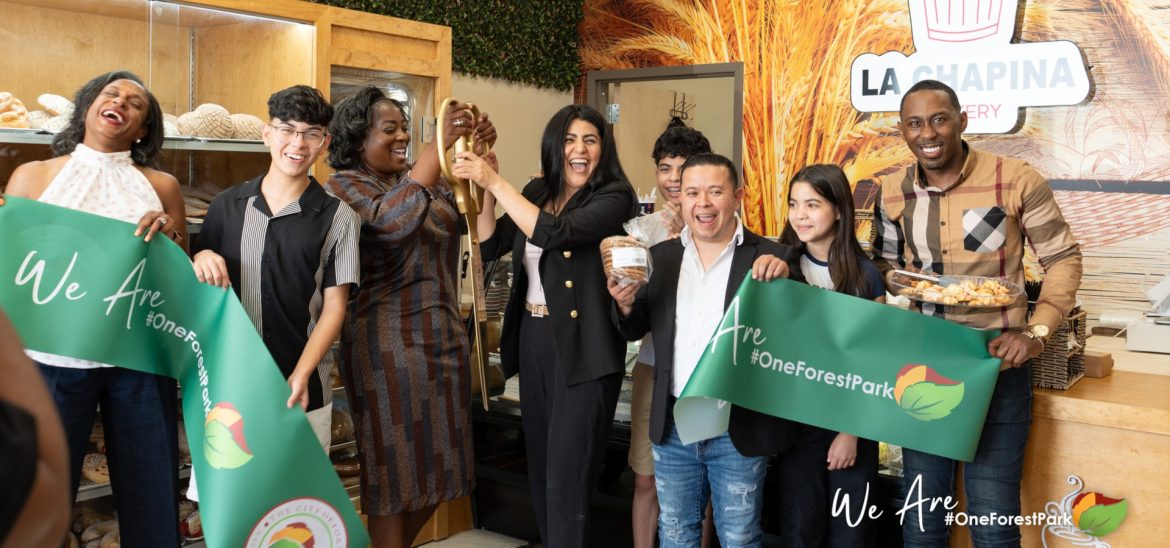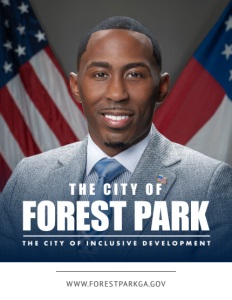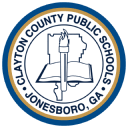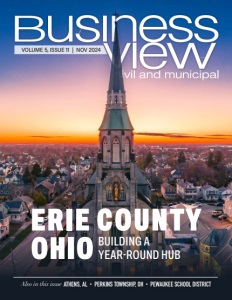Forest Park, Georgia
The City of Inclusive Development
Exploring a Vision for Holistic Infrastructure and Community Growth
For the residents of Forest Park, Georgia, enjoying a great quality of life is something that is cherished every day. With a community feel that embraces its residents and a city leadership that fosters strong partnerships with developers and investors, Forest Park continues to experience dynamic growth.
Forest Park is also a city that maintains a commitment to community-oriented projects that enhance the everyday lives of its residents.
Initiatives like affordable senior housing, enhanced public safety through better lighting, and pedestrian-friendly downtown spaces have been key to nurturing a strong, inclusive community.
By addressing these needs, Forest Park ensures that its growth doesn’t outpace its ability to support its citizens and remains steadfast in its efforts to balance modernization with preservation.

City Manager Ricky L. Clark, Jr.
The city stands at the forefront of change, driven by a vision that balances its unique heritage with forward-looking infrastructure improvements. Its rich history and close-knit community are as much a part of its future as its new developments.
Thanks to proactive and community-focused leadership, Forest Park has become a city where every resident feels secure, engaged, and proud to call home — a place where growth is felt not just in numbers but in the strength and vibrancy of the community itself.
Promoting the Forest Park Story
Forest Park stands as Clayton County’s largest municipality, perfectly positioned near Hartsfield-Jackson Atlanta International Airport and roughly 10 miles from downtown Atlanta.
With a population of nearly 20,000 residents (and counting), the city is embarking on a series of transformative projects that encompass everything from transportation and housing to water systems and public safety.
Thanks to its well-rounded promotion strategy, leadership anticipates that the city’s current growth rate won’t slow down anytime soon.
“Promotion is more than just marketing. It’s about showcasing the very essence of who we are, highlighting our unique attributes, celebrating achievements, and then inviting the world to experience what makes our city exceptional,” says City Manager Ricky L. Clark, Jr.
Thanks to city officials like Public Information Officer Javon Anthony Lloyd, the city frequently updates its database of 30,000+ individuals on current and new projects on the horizon, while maintaining close relations with local media outlets like FOX 5 Atlanta and 11Alive and WSB-TV.

Public Information Officer Javon Anthony Lloyd
“It all boils down to telling the Forest Park story. We not only have economic development, great parks, and amenities, but our community is also very vibrant and diverse. It’s my job to make sure I’m using every tool possible to get that message out,” Lloyd explains.
While outreach and promotion have been key, Forest Park also focuses on having amenities that could attract further growth and activity to the area.
For example, the city recruited a state-of-the-art 547,000-square-foot film production facility named BlueStar Studios. Once fully complete, it will be a fully renovated headquarters with 18 different sound stages, ready to support hundreds of production crews through Metro Atlanta.
This comes in addition to a new 200,000-square-foot Forest Park City Center that will encompass all of city facilities excluding public works and the fire department.
One of the city’s most pressing challenges is ensuring that its infrastructure can keep pace with its steady growth.
As Clark points out, there is no “first, second, or third” priority when it comes to infrastructure. The city’s approach is holistic, addressing all key areas simultaneously to ensure that no critical facet of the community’s foundation is neglected.
A Balanced Resolution to Residential Issues
“We can’t stop the growth of the city just because we’re waiting on funding for roads,” Clark explains. “You have to continue working on all areas simultaneously.”
This proactive attitude underpins Forest Park’s multifaceted strategy for improvement, where no area is allowed to deteriorate or be delayed in favor of another. As the population continues to rise, each piece of the puzzle must be
addressed in concert, maintaining both the safety and quality of life for Forest Park’s residents.
At the heart of Forest Park’s strategy is the enhancement of its road and water systems. The city currently supports a population of nearly 20,000 residents, all relying on an aging infrastructure that needs consistent upgrades to meet new demands.
The roadways, while not in critical condition, need to be improved gradually as traffic volumes increase.
Water systems, similarly, require maintenance and expansion to support the growing population. Clark emphasizes that these improvements cannot be delayed — patching and piecemeal solutions must be continuously applied while the city works toward long-term fixes.
Simultaneously, Forest Park is focusing on addressing the needs of its senior population, whom Clark refers to as the city’s “legacy residents.”
As these residents move into their later years, they are seeking more manageable housing options that allow them to remain part of the community without the burden of maintaining large homes.
The development of communities like Forest Station, which offers affordable one and two-bedroom housing for residents aged 55 and older, is a prime example of how the city is catering to this demographic.
Clark emphasizes the importance of ensuring seniors can “age in place” rather than being forced out due to a lack of suitable housing options. This focus on affordable, community-centric housing aligns with Forest Park’s broader goals of inclusivity and sustainability.
Forest Park is not only about maintaining its existing charm but also about embracing modern innovations. When asked about residents’ reactions to the city’s growth, Clark notes that the community is excited about the changes.
“Our residents are more excited about the future,” he says, pointing to the city’s ability to balance tradition with progress. Residents still recognize Forest Park as the place they grew up in, but they also see the benefits of modernizing infrastructure and amenities.
Lloyd adds that the city’s “ONE Light” initiative is a key part of this modernization effort. Through a partnership with Georgia Power, the city is replacing outdated HID light fixtures with energy-efficient LED lights.
This project improves safety by increasing visibility in dark areas to reduce crime in previously under-lit regions. “Lighting is one critical component of infrastructure that not a lot of people realize,” Lloyd explains.
The initiative represents just one piece of the city’s larger plan to enhance public safety and create a more welcoming environment for all residents.
In tandem with lighting upgrades, Forest Park is investing in a pedestrian bridge downtown, connecting key city attractions like City Hall, Starr Park, and local shops.
This walkability improvement is part of the city’s Main Street redevelopment, which has already completed phases to add sidewalks, plant trees, and revitalize the area’s overall appeal.
These projects aim to make Forest Park more pedestrian-friendly, inviting, and vibrant.
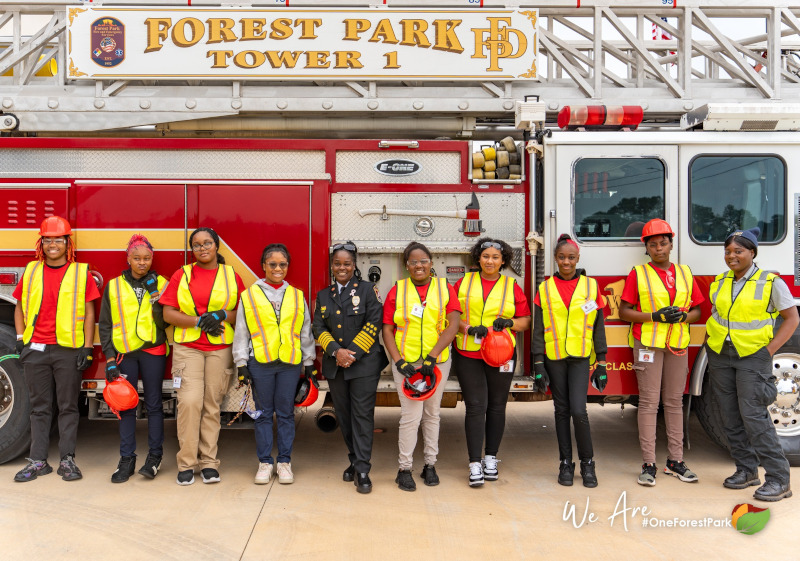
A Thriving Future on the Horizon
While Forest Park is deeply invested in its current projects, the city’s leadership is even more excited about what’s to come. Though specific economic development projects are under non-disclosure agreements (NDAs), Clark teases major undertakings that will further bolster the city’s economic vitality.
“Forest Park has always been a city of promise,” Clark says, and his goal is to make that promise more bold and inclusive. The city is working diligently to attract new businesses and industries that align with this vision, enhancing its downtown district and other key areas.
Among the more publicized projects is the renovation of Starr Park, a centerpiece in the city’s downtown revitalization efforts.
This park will undergo a complete transformation, becoming a hub for community gatherings and leisure located just outside City Hall.
In addition, the development of 29 new townhomes along Main Street will bring more residents to the area, contributing to the ongoing redevelopment of the district.
The city’s plans extend beyond residential and recreational projects.
One of the more innovative initiatives is the transformation of a vacant Rite Aid building into a modern brick-and-mortar incubator space.
Dubbed “The Grapevine,” the project will provide culinary entrepreneurs with kitchen space, flex offices, and opportunities to grow their businesses without the burden of securing a permanent brick-and-mortar location.
The incubator will house three restaurants and offer aspiring chefs a chance to experiment, grow, and eventually launch successful businesses of their own. The project is emblematic of Forest Park’s commitment to nurturing local talent and fostering economic growth from within.
Forest Park leadership is particularly proud of these efforts, noting that the incubator will not only boost the local economy but also “allow for new builds, new lighting, and a community that residents can be proud of.”
This multi-pronged strategy ensures that no area of the city is left behind as it prepares for the future.
Forest Park follows a vision where every resident — whether a senior citizen looking for affordable housing or a young entrepreneur launching a business — can thrive.
“We want to create a city that everyone can be proud of,” Clark says. “With so much progress already being made, it’s clear that Forest Park is well on its way to becoming a model of sustainable, inclusive growth.”
AT A GLANCE
The City of Forest Park
What: A rising city developing holistically through inclusive investments, community focused initiatives, and economic diversity.
Where: Clayton County, Georgia (Approximately 10 miles south of downtown Atlanta and close to Hartsfield-Jackson Atlanta International Airport)
Website: https://www.forestparkga.gov
PREFERRED VENDORS
Clayton County Public Schools – https://www.clayton.k12.ga.us/
Clayton County Public Schools (CCPS) is fully accredited by Cognia and proudly serves over 52,000 students as one of the 100 largest school districts in the U.S. and the sixth largest in Georgia. Governed by a nine-member Board of Education and led by Superintendent/CEO of Schools, Dr. Anthony W. Smith, CCPS includes 38 primary/elementary schools, 15 middle schools, 12 high schools, a virtual learning program, an alternative education center, a psychological education center, a multi-purpose education center, and two charter schools.
With a diverse and talented student body, CCPS is proud of its high schools, which are graduating students at an all-time high, with two schools having a 100% graduation rate and ranked among Georgia’s best by U.S. News and World Report. Driven by district- and school-level leadership, we have raised the level of rigor and expectations, enriching both student academic performance and staff excellence. We pride ourselves on fostering high-quality STEM, Fine Arts, and School Choice programs. Through programs that align work-based learning and career pathways with industry demands, we’re empowering students with the skills and experience to secure high-skill, high-wage, and high-demand careers. Additionally, CCPS is committed to delivering top-notch professional training for staff to ensure they are abreast of the strategies and practices contributing to an effective learning and working environment.
In addition to building college and career readiness, we ensure high-quality learning facilities. Since 1997, our community has repeatedly supported the district through the Education Special Purpose Local Option Sales Tax (E-SPLOST), raising nearly $1 billion. These funds have allowed us to construct new schools, expand and renovate existing ones, build necessary support facilities, purchase buses (to include electronic buses), and enhance our technology infrastructure.
The Clayton County Public Schools Foundation, Inc., a 501(c)(3) tax-exempt organization, stands as a key philanthropic partner in nurturing student success. The Foundation’s strategic investments, including scholarships, support innovative educational projects and provide essential classroom resources. These initiatives ensure our teachers can enrich the learning experience, helping every student realize their academic potential.
Beyond school support, the Foundation allocates funds to nonprofit organizations that support our students and advocate for their needs and interests. Through partnerships and economic development investments, CCPS Foundation prepares students for the workforce and creates advancement opportunities that contribute to the community’s growth.
CCPS continues to excel as a district dedicated to student success, employee excellence, and community partnership, cultivating a vibrant and dynamic environment where every student has the tools and support to thrive. Through a community-driven approach, the district is building a better tomorrow, today.
